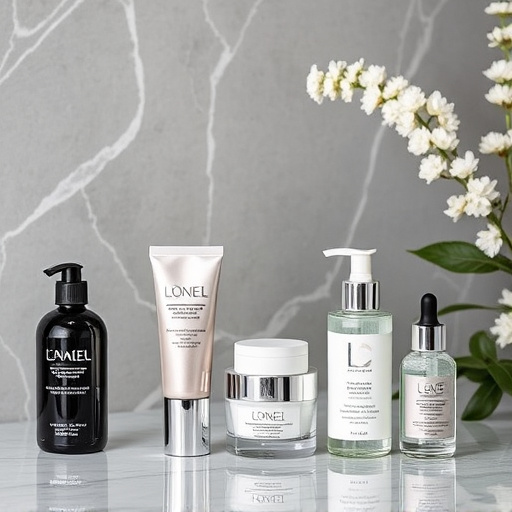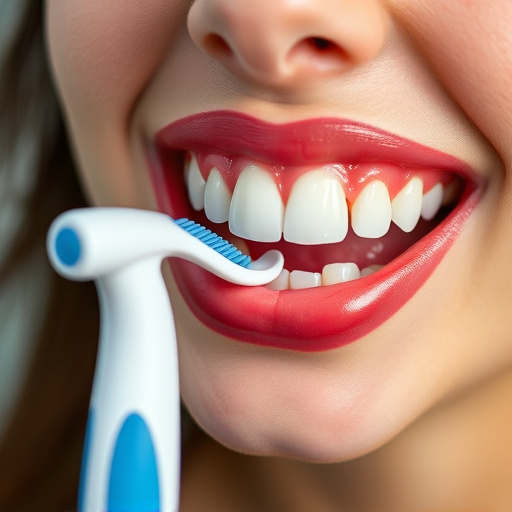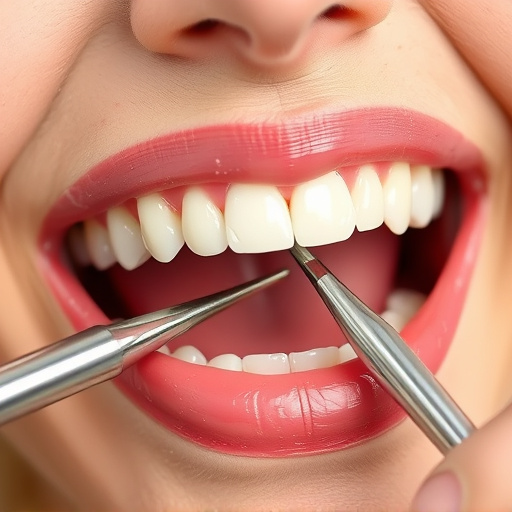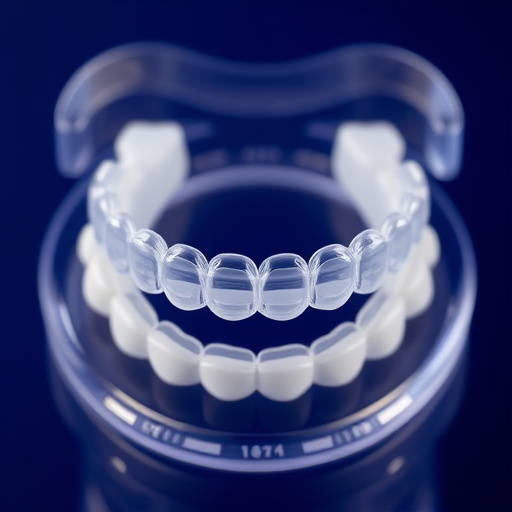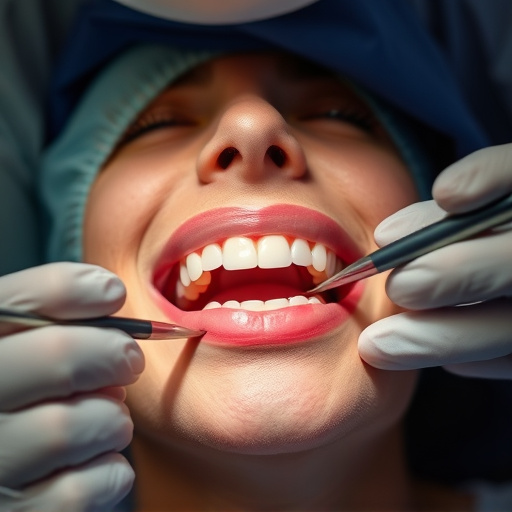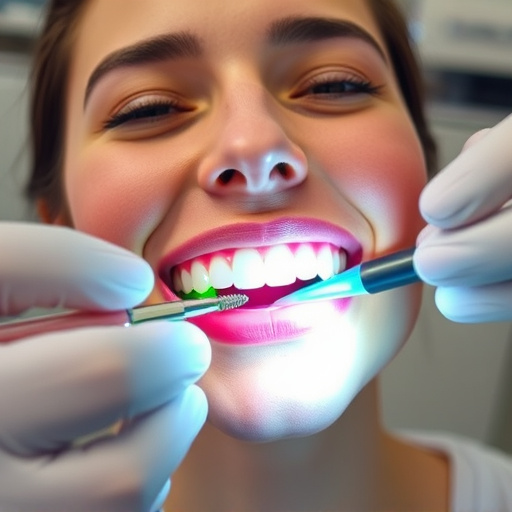Snoring, caused by blocked airways during sleep, impacts individuals' health and well-being, leading to poor sleep quality, fatigue, and irritability. Various non-invasive treatments like dental devices (mouthguards), nasal strips, lifestyle changes, and restorative dentistry can mitigate snoring. For complex cases, surgical interventions such as dental bonding or tooth extractions offer effective solutions, improving sleep quality and overall life for snorers and their partners.
Snoring affects millions, disrupting sleep quality and overall well-being. Understanding the causes behind this common condition is the first step towards finding effective snoring treatment options. From non-invasive techniques like mouthpieces and nasal strips to surgical interventions, various methods promise swift relief. This article explores these snoring treatment options, focusing on their efficiency in improving sleep patterns and providing a comprehensive guide for those seeking peaceful nights again.
- Understanding Snoring Causes and Its Impact on Sleep
- Exploring Non-Invasive Snoring Treatment Options
- Effective Surgical Interventions for Snoring Management
Understanding Snoring Causes and Its Impact on Sleep
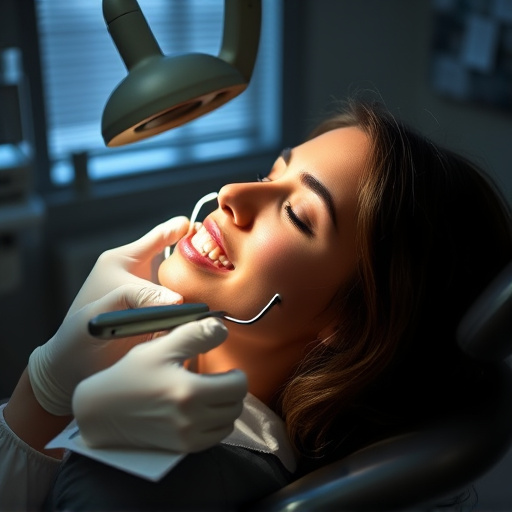
Snoring is a common sleep disorder that can have significant effects on overall health and well-being. Understanding its causes is the first step towards effective snoring treatment options. The condition arises when the upper respiratory airways become blocked or restricted during sleep, leading to vibrations in the throat tissues. These vibrations produce the characteristic snore sound. Various factors contribute to snoring, including anatomical traits like a narrow airway, excess soft tissue in the throat, and certain medical conditions such as obstructive sleep apnoea (OSA).
The impact of snoring on sleep quality is profound. It disrupts normal breathing patterns, leading to frequent awakenings and reduced overall rest. Snoring can cause daytime fatigue, irritability, and decreased productivity. Moreover, it’s not just the snorer who suffers; bedpartners often experience sleep disturbances as well. Exploring suitable snoring treatment options, such as those involving dental devices or even cosmetic dentistry (like dental crowns), can help mitigate these issues. Effective management not only improves individual sleep quality but also enhances the quality of life for both snorers and their partners.
Exploring Non-Invasive Snoring Treatment Options
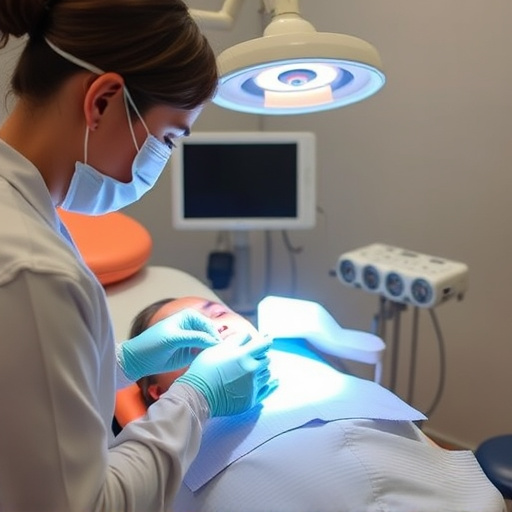
Snoring can disrupt sleep quality for both the snorer and their partner. Fortunately, there are numerous non-invasive snoring treatment options available that can provide fast relief. One such option is the use of mouthguards, which are designed to keep the airway open during sleep by adjusting the jaw position. These devices are particularly effective for people with mild to moderate snoring or those who snore due to a misaligned jaw.
Another non-invasive approach involves using nasal strips or sprays. These products help to expand the nasal passages, making it easier to breathe through the nose and reducing the need to snore. Additionally, some individuals find relief from snoring through changes in lifestyle, such as losing weight, avoiding alcohol and sedatives before bed, and sleeping on their side. For those with more complex issues, restorative dentistry techniques like tooth repair or specific procedures in children’s dentistry can sometimes play a role in mitigating snoring by addressing underlying dental or jaw problems.
Effective Surgical Interventions for Snoring Management

For those seeking swift and effective snoring treatment options, surgical interventions offer a range of promising solutions. One such procedure involves dental bonding, where a dentist applies a resin material to the upper jaw to reshape and reposition the tongue, thereby reducing obstructed airways during sleep. This minimally invasive method is often ideal for mild to moderate snoring cases.
In more severe instances, surgical options like wisdom tooth removal or specific tooth extractions can provide significant relief. These procedures aim to create more space in the upper airway, allowing for unobstructed breathing and significantly improving sleep quality. While they may sound intimidating, modern dental techniques ensure patient comfort and faster recovery times.
Snoring can significantly disrupt sleep quality, leading to various health issues. However, with a range of effective snoring treatment options available, it’s possible to restore peaceful slumber quickly. From non-invasive methods like oral devices and lifestyle changes to surgical interventions, each approach offers unique benefits tailored to individual needs. By addressing the root causes of snoring, these solutions not only improve sleep quality but also enhance overall well-being, ensuring a quieter, deeper rest for a healthier you.


